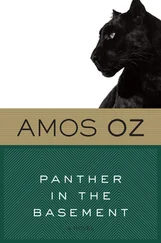Amos Oz - Where the Jackals Howl
Здесь есть возможность читать онлайн «Amos Oz - Where the Jackals Howl» весь текст электронной книги совершенно бесплатно (целиком полную версию без сокращений). В некоторых случаях можно слушать аудио, скачать через торрент в формате fb2 и присутствует краткое содержание. Год выпуска: 2012, Издательство: Houghton Mifflin Harcourt, Жанр: Современная проза, на английском языке. Описание произведения, (предисловие) а так же отзывы посетителей доступны на портале библиотеки ЛибКат.
- Название:Where the Jackals Howl
- Автор:
- Издательство:Houghton Mifflin Harcourt
- Жанр:
- Год:2012
- ISBN:нет данных
- Рейтинг книги:4 / 5. Голосов: 1
-
Избранное:Добавить в избранное
- Отзывы:
-
Ваша оценка:
- 80
- 1
- 2
- 3
- 4
- 5
Where the Jackals Howl: краткое содержание, описание и аннотация
Предлагаем к чтению аннотацию, описание, краткое содержание или предисловие (зависит от того, что написал сам автор книги «Where the Jackals Howl»). Если вы не нашли необходимую информацию о книге — напишите в комментариях, мы постараемся отыскать её.
Where the Jackals Howl — читать онлайн бесплатно полную книгу (весь текст) целиком
Ниже представлен текст книги, разбитый по страницам. Система сохранения места последней прочитанной страницы, позволяет с удобством читать онлайн бесплатно книгу «Where the Jackals Howl», без необходимости каждый раз заново искать на чём Вы остановились. Поставьте закладку, и сможете в любой момент перейти на страницу, на которой закончили чтение.
Интервал:
Закладка:
He did not like words and therefore he was silent.
In his dreams on summer nights in his youth, he forced his way gently upstream.
In the morning, when he rose, he took the dagger and slowly, patiently tested with it everything he found in the courtyard: Dust. Bark. Wool. Stone. Water.
Jephthah did not display his father’s moods. He was a strong, finely shaped boy; colors, sounds, smells, and objects attracted him much more than words or people. When he was twelve he could handle an ax, a ewe, a cudgel, or a bridle. As he did so, a controlled excitement could sometimes be discerned in him.
And now the hatred of his brothers Jamin, Jemuel, and Azur began to close in all around him. They wished him ill because he was the son of another woman, because of his haughty silence, and because of the arrogant calm that seemed at every moment to be concealing stubborn, secretive thoughts which brooked no sharing. If ever the brothers invited him to join in their games, he played with them without saying anything. If he won a contest he did not boast or gloat, but merely shut himself up in a silence which increased their hatred sevenfold. And if one of the brothers defeated Jephthah, it always seemed as though he himself had voluntarily renounced the victory out of calculation or contempt, or because he had lost his concentration in the middle of the game.
The three brothers, Jamin, Jemuel, and Azur, were solidly built, broad-shouldered youths. In their own way they knew joys and laughter. Jephthah, on the other hand, the son of the other woman, was slim and fair. Even when he laughed he seemed withdrawn. He had a habit of fixing his gaze on others and refusing to look away. A fleeting yellow spark would flash in his eyes, compelling others suddenly to yield.
Because of Pitdah’s spells, or perhaps because of fear of their father, the brothers did not dare to mistreat Jephthah as they wished. They merely hissed from a distance in a whisper: Just you wait.
Once Pitdah said: Weep, Jephthah, cry out to our god Milcom, he will hearken and protect you from their whispering hatred.
But in this matter Jephthah did not heed his mother. He did not weep to Milcom god of Ammon but merely bowed low and said to his mother: As my lady mother says. As though he considered Pitdah to be the lady of the house.
She wanted to bring down on her son the blessing of Milcom god of Ammon, because she foresaw that she would die and that the boy would be left alone among strangers. And so she brewed her potions at night and fed them at night to Jephthah. When her fingers touched his cheek he would tremble.
In his heart Jephthah had no faith in these potions, but neither did he refuse to drink them. He loved their strange, pungent smell, the smell of his mother’s fingers. And she would speak to him of Milcom, whom the Ammonites worshiped with wine and silk. Not like your father’s god, a barren god who afflicts and humiliates those who love him. No, Milcom loves marauders, he loves those who are merry with wine, he loves those who pour out their hearts in song, and the music that blurs the line between ecstasy and rage.
Of the God of Israel Pitdah said: Woe to those who sin against him and woe to those who worship him in faith; he will afflict them both alike with agonies because he is a solitary god.
Jephthah observed the stars in the summer sky over the estate and the desert. They seemed to him to be all alone, each star by itself in the black expanse, some of them circling all night long from one end of the sky to the other, while others remained rooted to one spot. There was no sorrow in all the stars, nor was there any joy in them. If one of them suddenly fell, none of the others noticed or so much as blinked, they simply went on flickering coldly. The falling star left behind it a trail of cold fire, and the fiery trail also faded and gave way to darkness. If you stood barefoot and strained to listen, you might hear a silence within the silence.
The household priest who taught the other brothers also taught Jephthah to read and write from the holy scriptures. Once Jephthah asked the priest why God was more merciful to Abel and Isaac, Jacob, Joseph, and Ephraim, and why he preferred them to their elder brothers, Cain, Ishmael, Esau, and Manasseh: surely all the evil in the scriptures came from God himself, surely it was to him that the blood of Abel cried from the earth.
The household priest was a corpulent man with small, anxious eyes. He was constantly shrinking from the wrath of the lord of the house. The priest replied to Jephthah that the ways of God were wonderful and who could say to God why or wherefore. At night Jephthah dreamed of God coming heavy and shaggy, a bear-God with rapacious jaws who growled at him panting gasping and panting as though he were throbbing with lust or boiling rage. Jephthah cried out in his dream. People occasionally cried out in their sleep in Gilead’s house, and at the end of their cries there was silence.
Milcom, too, crept into Jephthah’s dreams on those summer nights. Warm currents coursed luxuriantly through his veins as the silken fingers touched his skin and sweet juices washed through him to the soles of his feet.
Next morning Jephthah would appear solitary and withdrawn in the great courtyard, skipping from shadow to shadow, and the yellow glint had even faded from the pupils of his eyes.
When Jephthah was a boy of about fourteen, he began to be favored with signs. As he walked alone in the fields or followed the flocks down into one of the gullies, he was beset by signs, and he felt that it was to him alone that they were directed, that he was being called. But he could not discover what the signs were or who was calling him. Sometimes he fell on his knees as the household priest had taught him and struck his head on the rock and pleaded aloud: Now, now.
In his mind he weighed the love of God against the love of Milcom. He found the love of Milcom very easy, it came to him at almost no cost, like the love of a dog. You play with it for a moment and you have won its heart; it will come close, lick your hand, and perhaps even guard your sleep in the field.
But to ask for the love of God Jephthah did not dare, because he did not know what. If a momentary pride flared up inside him and he made a mental comparison, saying: I am the youngest, I am like Abel and Isaac and Jacob, sons of their parents’ old age, at once he would recall that he was the son of another woman, like Ishmael, who was the son of the Egyptian woman.
One day the lord told his household that God must be approached not in the way that a butterfly approaches a flower but as it approaches the fire.
The boy heard these words and he also put them to the test.
He began to seek out dangers with which to challenge himself. He tested himself on the mountain crags, in the shifting sands, in the well. He even pitted himself against a wolf. One night he went out alone and unarmed to find the wolf and fight it at the mouth of its lair, and with his bare hands he broke the beast’s back, and returned home from the test merely bitten and scratched. He was trying to court God’s favor, and in the autumn he even trained himself to pass his hand through the fire without crying out.
Some of these acts were seen by the household priest, and he went and told the lord that the Ammonite was passing his hand through fire. Gilead heard the priest out, then his face clouded with rage, he gave a wild laugh, cursed the priest, and gave him a blow that sent him sprawling.
That night Gilead the Gileadite gave orders for the concubine’s son to be found and brought to him. A fire was burning in the hall, because it was a cold desert night and the air was dry and biting. The walls of the hall were hung with saddles, iron chains, shields, threshing sledges, and spears of polished bronze. All these objects caught the firelight and reflected it gloomily.
Читать дальшеИнтервал:
Закладка:
Похожие книги на «Where the Jackals Howl»
Представляем Вашему вниманию похожие книги на «Where the Jackals Howl» списком для выбора. Мы отобрали схожую по названию и смыслу литературу в надежде предоставить читателям больше вариантов отыскать новые, интересные, ещё непрочитанные произведения.
Обсуждение, отзывы о книге «Where the Jackals Howl» и просто собственные мнения читателей. Оставьте ваши комментарии, напишите, что Вы думаете о произведении, его смысле или главных героях. Укажите что конкретно понравилось, а что нет, и почему Вы так считаете.












